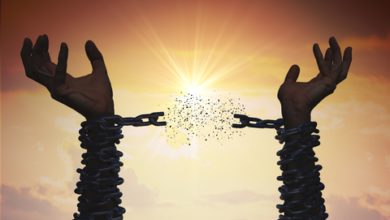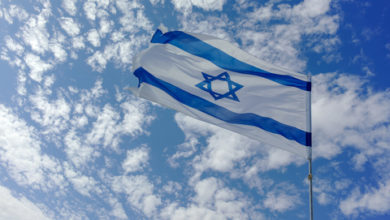“For we have Heard” | Haftarah
Rahab helps the two scouts that Joshua sent, even though she knows that they have come to conquer Jericho. At first glance this would seem to be an act of treason against her own people and an act supporting the invaders. However, she can justify her actions based on a number of significant claims. Rahab’s first claim is a realization that the end has come for the entire region of Canaan: “I know that G-d has given the land to you” [Joshua 1:9]. This is a form of recognition of the high moral status of the wars of Israel, for G-d would certainly not give land to a nation which does not uphold a righteous moral standard. “The entire earth belongs to the Holy One, Blessed be He, and He gave the land to those He found worthy” [Rashi, the beginning of Genesis, based on Jeremiah 27:5]. Rahab’s words are a direct continuation of what G-d said to Abraham: “For the sin of the Amorites is not yet complete” [Genesis 15:16]. The nations of Canaan would not be defeated by Israel as long as they still have some remaining merits. “According to His will, He gave it to them” [Rashi]. That is, when the people of Canaan did His will and were favored by Him, He gave them the land. But now His desire is that the land should be taken from them and given over to Israel.
The second claim is in the political realm. This is that Israel is stronger than the Canaanites: “And that your fear has fallen over us, and all of the residents of the land have turned to liquid because of you” [Joshua 2:9]. The low morale of the people in the land renders ineffective any opposition they might try.
The third claim involves recognizing the Divine guidance over Israel. “For we have heard that G-d dried up the waters of the Red Sea before you when you left Egypt, and what you did to the two Amorite Kings who were across the Jordan River” [Joshua 2:10]. She takes note of the splitting of the Red Sea forty years before, and the wars against Sichon and Og just a few months previously. (However, it is surprising not to see any mention of the momentous events of Sinai and the journey through the desert. This implies that the giving of the Torah and the appearance of the Shechina, the holy Presence, in Israel are internal matters that involve a special relationship between the Holy One, Blessed be He, and Israel.)
From this point, Rahab reaches conclusions that are on a metaphysical level: “For your G-d is the G-d of heaven above and of the earth below” [2:11]. This is no longer a reference to the victory of one local god over others, as was the usual way that wars were interpreted in the ancient world. Rather, it implies the intertwining of the history of the nation of Israel as part of the general plan of the Creator, who has a broad view of all the generations of past and future history.
We can learn from this viewpoint that our own spiritual renewal in this generation is a continuation of those ancient events which began with the Exodus of our people from Egypt and which is reaching a conclusion at this time.
The depths of perception by Rahab, a woman who stood at the crossroads of history and was able to understand the underlying processes taking place in the events of her day, are worthy of being studied for all generations to come. They are the kind of prophecies which can be useful for all of the generations of mankind – and that is the reason that they have been written down and preserved in our holy books.
May you be blessed with good and healthy life and abundance.
————– In the meantime until the prophecy will come back:
Have a doctor’s appointment and feel the need to pray?
Looking for a partner? wanted to ask God’s help?
Need help making a living and want to know how to pray?
Looking for the right words prophetic tradition to thank the Creator?
Wish to pray Like the Old Testament prophets?
The prayers which was passed on traditionally
from the time of the Prophets – And have been
preserved for thousands of years among the people of Israel?!
Source: “NOTES FROM THE HAFTARAH” – a biweekly column in Shabbat B’Shabbato (Zomet Institute) See: http://www.zomet.org.il/eng – Shelach 5776, issue 1629.



